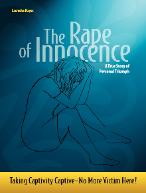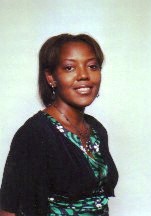Getting to Know Margaret Norton
Topic: Author Interview
Margaret Norton the person: 1. What three words do you think describe you as a human being?
How do you think others would describe you?
Compassionate, Serious, Hard Worker
2. Please tell us what you are most passionate about outside of writing.
My children and grandchildren
3. Do you have any pets? If so, introduce us to them.
One cat I adopted from a shelter. His name is Falcon
4. What is your most precious memory?
Any memories involving my father and sister. Both are deceased.
5. What is your most embarrassing memory?
A piano recital when I was 12 years old. I forgot the music.
6. If you weren't a writer, what would you be doing with your life?
I have been working in the mortgage industry since 1994. The last few years the work has been unsteady and I've been trying to transition out of that to become a full time Personal Life Coach and Writer. If I had not decided to do this I would probably still be trying to stick it out in that field.
7. In two paragraphs or less write your obituary.
Margaret, sometimes called The Cat Lady, was a person who gave her best to everyone and everything she was involved in. Some people viewed her as quiet and serious which she was. But that was because she was a deep thinker and very analytical. She believed she learned more by listening than by talking. She was honest, dependable and loyal. She liked people but was very content spending time alone.
Those who knew Margaret well describe her as a survivor and fighter.
She overcame several abusive relationships and endured mistreatment from her family. As a Christian it was her faith in God that helped her forgive and learn to love those who had hurt her deeply. After that she became a passionate fighter against all forms of abuse. In her book, When Ties Break/Thriving After Loss, she used her own life to show how easy it is to make mistakes. But she did not view these as failures but rather as opportunities to keep trying. She became know for the statement she coined "Life gives you many chances to start over again, life a cat with nine lives."
Margaret Norton the writer:
8. Can you describe the time you realized you were indeed a "real" writer?
In March, 2008 one of my articles was published, along with my picture, in a local newspaper. I've had several articles published other places but there was something about being in the paper that made me feel like I was a real writer.
9. What is going on with your writing these days?
As I mentioned above I have been transitioning from my old career to writing. I'm still learning and exploring different types of writing. I'm taking a creative writing class with Long Ridge Writing Academy with the hopes of having some of my articles published in major magazines. Two months ago I discovered the avenues of writing available on the internet and started to pursue jobs as a freelance writer. I've completed four paying jobs and I'm working on four more.
10. What are your future goals for your writing?
My biggest goal at the moment is praying that my agent will find the right publisher for my book. Once the book is published I hope it opens doors for me to be more involved in programs aimed at stopping abuse. I would like to eventually write a second book. One of my goals is to make enough money as a writer (combined with Personal Life coaching clients) to support myself.
11. Can you describe a typical writing day for you?
Because I have still been working mortgage jobs none of my days are typical. An ideal day for me would be: Sleep until I wake up. Have my morning coffee & a light breakfast. Daily devotion, meditation & prayer. Go for a short walk. Then spend some time writing. Finish up in the early afternoon leaving most of my evenings free. I'm not there yet but that's what I'm working toward. Now I'm doing so many things because I'm still learning how to write, promoting my freelance business, taking classes, entering contests, submitting articles, etc.
12. Why do you write?
I started writing in 2005 after 8 people connected to me died. It was therapy and I was searching for answers. When I shared my work with several people they encouraged me to think about writing more. It was then that I turned my journals into a book. I discovered that I enjoyed writing. But more importantly I feel that I have a message to convey.
13. What writer most inspires you? Why?
There are many writers who have inspired me through the years. It would be difficult to name just one. A writer who makes me think, challenges me to change and forces me to view things differently inspires me. I have a fondness for self-help books. I am always inspired by the Bible.
14. How do you define your writing?
That's difficult because my style is still developing. I'm leaning toward nonfiction, especially creative writing where I share my experiences to help others. I struggle with that because I worry that people will become bored hearing about me and it is sometimes difficult to talk about myself. But I do have many stories to tell.
15. In one sentence-what do you want people to say about your writing in fifty years?
Margaret's writing helped me to better understand abuse and motivated me to make changes in my own life.
Margaret Norton the details:
16. Can you tell us where to find more information on you? Website? Blog?
http://www.margaretnortonlifecoach.com/
http://www.whentiesbreak.com/
http://www.whentiesbreak.blog.com/
17. Is there a place where readers can reach you?
My email address is margnorton@gmail.com
There's a contact form on my web sites and a sign up for my monthly newsletter.
18. Can you list all your book titles so people can look for them?
Short Story published in A Light Along the Way
Short Story published in Story Circle Network Quarterly Journal
Blog for http://www.financiallearn.com/ & http://www.insuranceproducts.com/
Articles published with Ezine, Xomba, AC and How to do Things (on line magazines)
These are not book titles but as a new writer this is a good start.
As soon as my agent finds a publisher I will have more details on my upcoming book. I have titled it, When Ties Break/Thriving After Loss, but the publisher may want to change that.
19. For new readers-what can they expect when they read your book(s)?
To know everything about my life. A story about beating the odds, surviving difficulties, never giving up. A happy ending. Should encourage and uplift many people. It has a little of everything:
coming of age story, sibling abuse, raised by a farmer/marine/minister father and mother who spend time at insane hospitals, dealing with speech problems & chronic illness,
bad choices - bad men - bad marriages, spouse abuse, adultery, abortion, betrayal, divorce, single mother, remarriage, step families, children who were abused & struggled with ADD & ADHD, drug addition, homosexuality, bankruptcy, failed business, death of my sister, father and brother, angry at God & struggle to understand my life, and low self-esteem.
All of this would be more than enough but none of these were the defining moment in my life. To learn what happened to me that shattered my whole world and hurt me so deeply that it took years to recover ... you will have to read my book.
In conclusion:
20. Take as much space as necessary to speak to our readers-what would you like them to know about you and your writing?
As open and honest as I've been in the above comments there's not much more to say. Sometimes people ask me very cautiously what I think is so special about my life that I would want to write a book about it. I am quick to comment that I don't feel my life is special at all. I've had more than my share of problems for which I am grateful. This made me who I am today. Everyone has a story to tell but not everyone can tell their story. I have changed the names of the people in my book but it is a true story - not a James Frey situation - I had so much stuff I did not need to exaggerate or add details. People who know me and my family will recognize the characters in the book. Most people are not willing to put the dirty details of their life and their family under public scrutiny. I did not plan to write a book. But rather I felt compelled to share my story with the world. Not enough people speak out when they are mistreated. Not speaking out is almost a passive form of acceptance. But there are many who can not speak out, for one reason or another. I am speaking on their behalf. I think others can learn from my mistakes. I think I can make a difference in the world by telling my story. It wasn't that I wanted to talk about myself but rather this was something I felt I must do. A calling or ministry of sorts.
Posted by joyceanthony
at 12:01 AM EDT
Updated: Friday, 25 April 2008 2:22 AM EDT

 For all the things that God does here on the earth, it seems He always uses a person. God rarely uses birds to bring us food as He used ravens to feed Elijah. Most people probably won't experience manna raining from heaven in their lifetime. God uses us to minister to each other, and it is shameful for the Body of Christ not to have an answer for those who are hurting. Where can a person find the answer if not in the Church? If a person cannot trust the people in today's churches to really love them, where should they search for love?
For all the things that God does here on the earth, it seems He always uses a person. God rarely uses birds to bring us food as He used ravens to feed Elijah. Most people probably won't experience manna raining from heaven in their lifetime. God uses us to minister to each other, and it is shameful for the Body of Christ not to have an answer for those who are hurting. Where can a person find the answer if not in the Church? If a person cannot trust the people in today's churches to really love them, where should they search for love?
